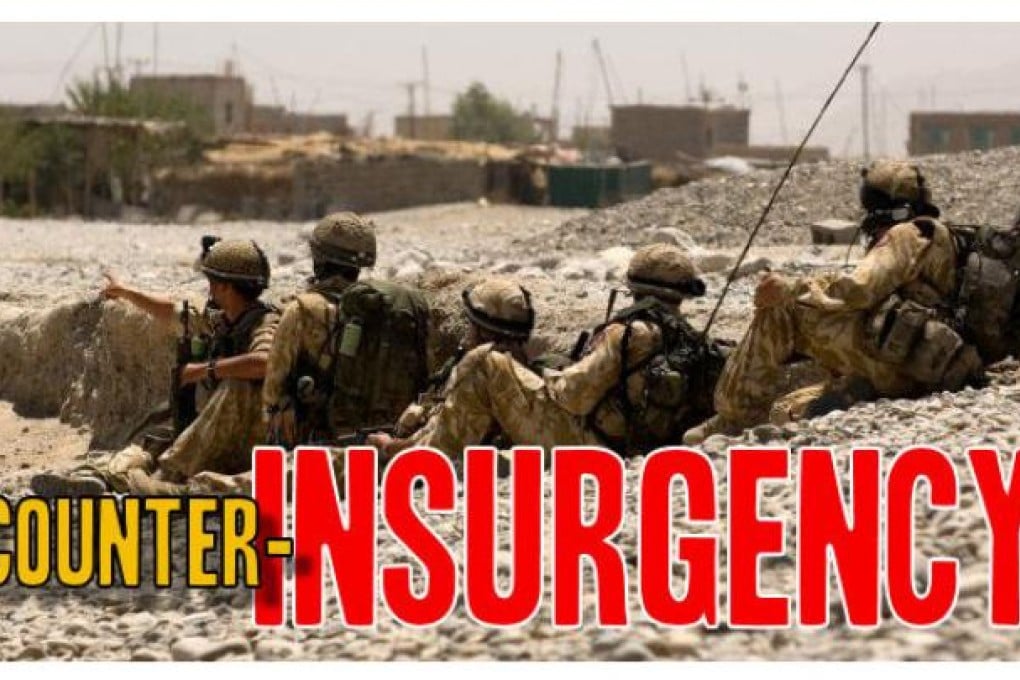Soft side of counter-insurgency wins half the battle
A non-violent strategy assisted in battle to address people's problems and uproot the rebellion in Afghanistan, Iraq

I returned to Hong Kong this month after three years in Afghanistan where I was involved in the counter-insurgency effort. Before that, I was in Iraq, which marked the 10th anniversary of its invasion by the US last week.
Most people think counter-insurgency is all about men in masks kicking down doors and rappelling down from the roofs of buildings. Yes, the application of surgical violence is still key, but many contemporary counter-insurgency tactics have a softer side, and involves an interdisciplinary application of the social sciences.
In Afghanistan, as a social scientist, I analysed the sentiments of the Afghan people for the US military. I could provide a sense of how people reacted to its policies. These policies included transition, the drawing down of US and allied troops in the country, and reintegration, the effort to get insurgents to lay down their arms and join the Afghan government in either a civilian or military capacity.
I also reported on how the people felt about corruption, the Afghan National Army, the Afghan National Police, burning of the Koran and other misdeeds by US and allied troops against locals. I could also give the US military a sense of how well its policies were accepted.
In 2008 in Iraq, I was a US Department of State senior governance specialist for eight months on the Ninewa Provincial Reconstruction Team (PRT), taking part in the soft side of the US counter-insurgency effort.
Most counter-insurgency work, like the Soviet effort against the mujahideen in Afghanistan, which did not make use of input from social scientists, had failed. The American counter-insurgency in Iraq was a success. Yet, Americans took advantage of indigenous efforts that initiated the defeat of the insurgents.
Al-Qaeda in Iraq, then led by Abu Musab al-Zarqawi, overplayed its hand, attacking people at Shiite mosques, leading to the Anbar Awakening, or the Sons of Iraq, in 2005. The American surge of 2007 followed to complete the defeat of the insurgents.